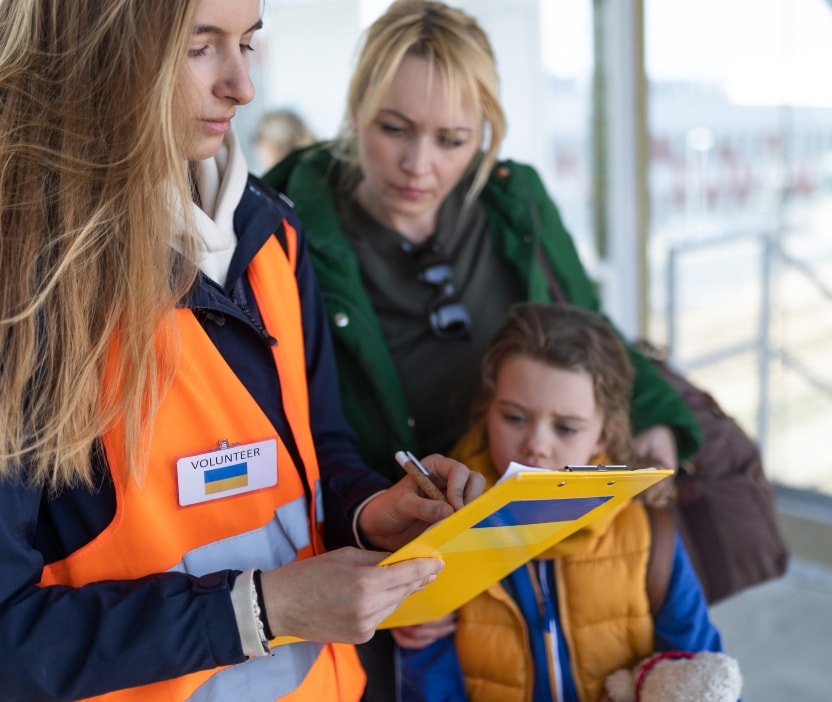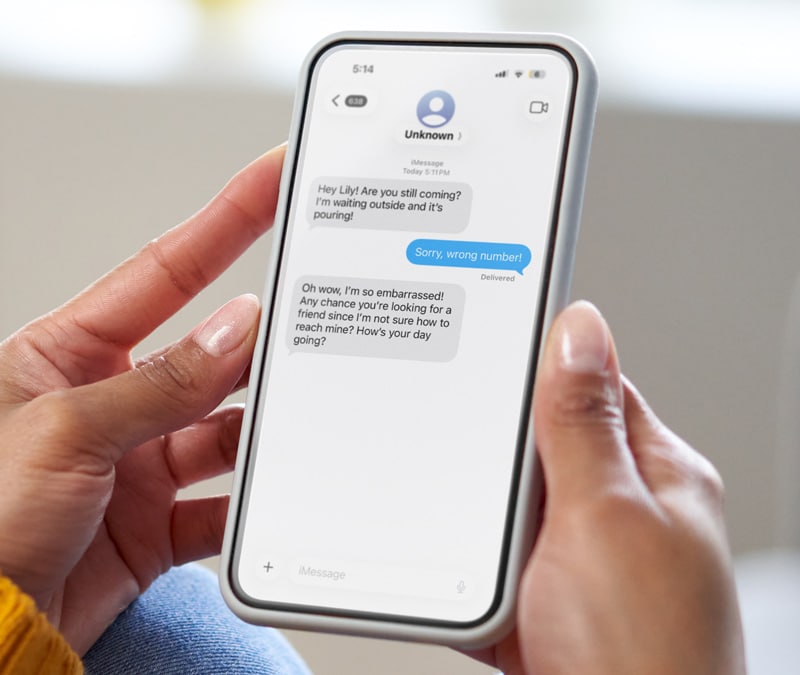Protecting yourself from disaster-related scams
When people are at their lowest, criminals go even lower. The dark side of disasters: where scammers prey on those who are most vulnerable.

Neighbors helping neighbors, communities rallying together, people from all walks of life pitching in, donations piling up—the good of humanity is apparent when disaster strikes. But, sadly, these times of distress can also be a breeding ground for scams, as some fraudsters seek to exploit the vulnerable and compassionate alike.
From imitating emergency relief to creating fake fundraisers, disaster victims and their families need to be on the lookout for those with ill intentions. Learn how to better protect yourself and your loved ones from scammers exploiting tragedy.
Preying on the givers
Emergency relief, or is it?
When disaster strikes, many people turn to emergency relief groups for assistance. These organizations provide much-needed support in the form of food, shelter, and other basic needs. However, scammers often try to mimic these groups by setting up fake websites and social media accounts or even setting up phone banks to spam or text unsuspecting individuals in order to ask for donations. Often, the pushier they are, the more you should think twice about the organization's legitimacy.
To avoid becoming a victim of one of these fake emergency relief groups, it’s best to do a little research before giving any money. Look for organizations with a history of providing disaster relief, check for reviews and ratings from Charity Navigator or the Better Business Bureau, and skim their social media channels to see if it looks legitimate or hastily fabricated for the opportunity.
Fundraiser fakers
Much like the creation of emergency relief organizations, scammers also know how to fake crowdfunding campaigns and fundraisers. Claiming to raise money for a specific individual, family, or community affected by a disaster, they may use a GoFundMe page or similar platform. They’ll often share heartbreaking stories, pictures, and anything that'll make you empty your pockets to help.
It is essential to verify the authenticity of the campaign and the people behind it to ensure it’s legitimate. Look through social media or news reports to verify the story, look for inconsistencies or red flags, or anything that might simply feel wrong. When it comes to sharing your money, it’s rarely a mistake to go with your gut if something seems fishy.
Preying on the victims
Stealing the little that’s left
While many fraudsters prey on those who are donating to natural disaster causes, it’s heinous to think some are defrauding the actual victims; those who’ve lost their homes; those who are at their most vulnerable. As there’s so much information exchanged when filing for assistance programs, it’s really important you make sure you’re going through legitimate channels.
It’s useful to have some tips on hand just in case.
- Don’t give out info. Employees and officials with government disaster assistance agencies will never call, email, or text to ask for financial account information. There’s no need to give that information to anyone, especially an unknown number or sender.
- No need to pay. You do not have to pay any fee to apply for or receive disaster aid from FEMA or the Small Business Administration. If someone asks you to pay before helping, assume it to be fraudulent.
- Ask for ID. Employees and agents who go door-to-door for disaster relief carry official identification and must show it upon request. Also, these officials may not ask for or accept money.
- Keep an eye on your accounts. While there’s so much going on in your world, it’s still critical to protect your identity and keep an eye on your financial accounts. Make sure you flag anything suspicious. Sadly, criminals will take advantage of any situation.
The elderly are particularly vulnerable to disaster-related scams. If you have elderly friends or family members, it's important to let them know about the risks and remind them never to give out personal information over the phone or to anyone who shows up at their door uninvited under the guise of aiding or processing claims. It's best for them to contact trusted family members or friends if they're apprehensive about a situation.
Rental ruse
Even rentals can become a scam in such tumultuous times. The aftermath of natural disasters such as fires, hurricanes, and other calamities can make it difficult to find housing. Scammers know how to take advantage of this by posting fake rental listings online. While it might be normal for renters to require a deposit or the first month's rent upfront, take precautions to ensure the property exists and is vacant prior to handing over money.
Meet with the landlord in person, view the property, and ask for references from previous tenants before agreeing to anything. Additionally, be wary of listings that seem too good to be true because they probably are.
Disasters can bring out the best and worst in people. On one hand, many individuals and organizations work relentlessly to supply support and relief to those impacted. On the other hand, scammers seize the opportunity to exploit the vulnerable. The best things to do whether donating to or affected by a natural disaster are: 1) stay informed, 2) verify information, and 3) exercise caution. Protect yourself and those you love from falling victim to disaster-related fraud. It's essential to give sensibly and safely.
Please note: If you encounter a scam or suspect fraudulent activity, report it to the proper authorities, such as the Federal Trade Commission (FTC), Better Business Bureau (BBB), or your local law enforcement agency. Your report can help protect others from falling victim to similar scams.
Editorial note: Our articles provide educational information for you. Our offerings may not cover or protect against every type of crime, fraud, or threat we write about. Our goal is to increase awareness about Cyber Safety. Please review complete Terms during enrollment or setup. Remember that no one can prevent all identity theft or cybercrime, and that LifeLock does not monitor all transactions at all businesses. The Norton and LifeLock brands are part of Gen Digital Inc.





Want more?
Follow us for all the latest news, tips, and updates.